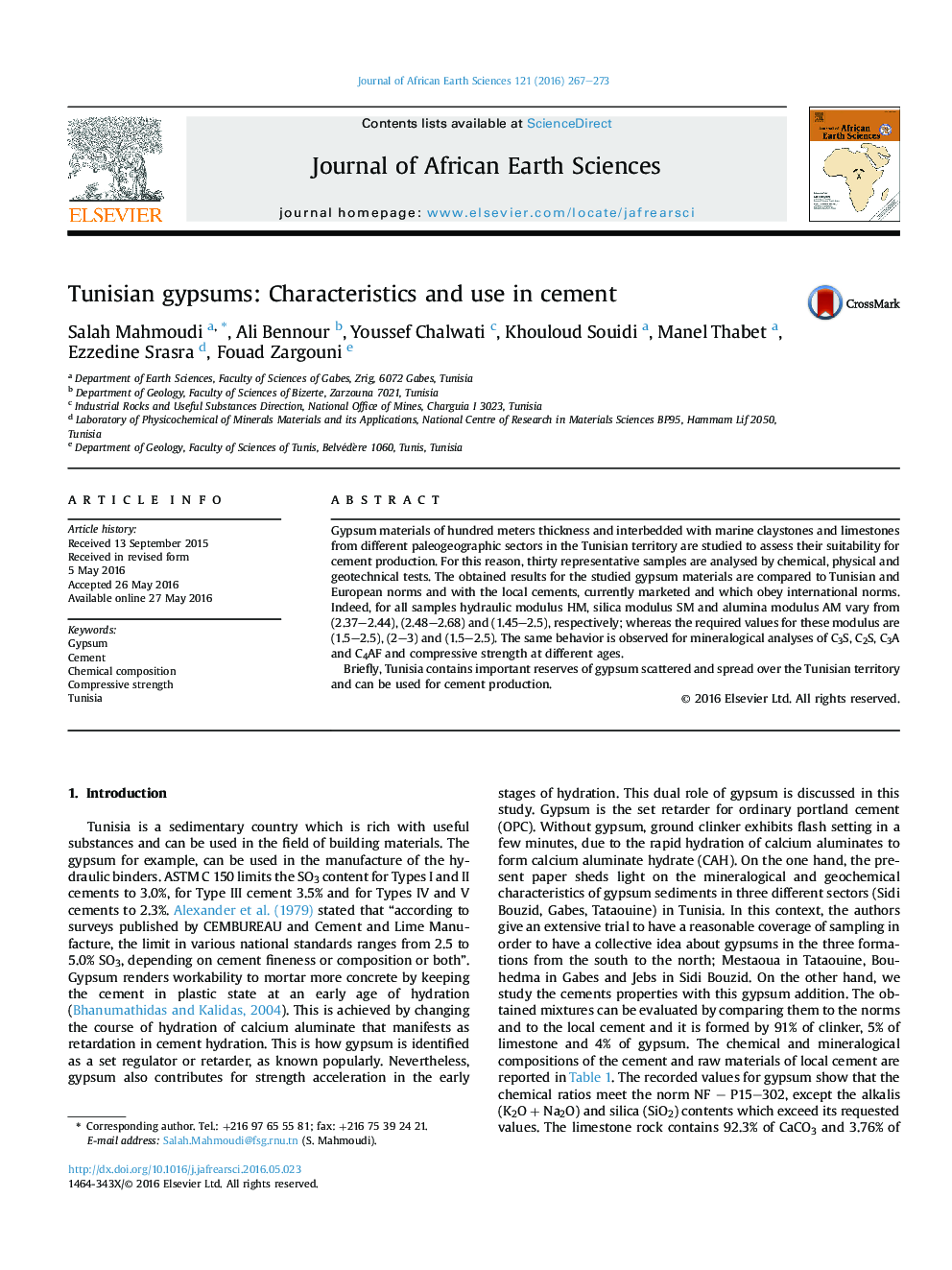| Article ID | Journal | Published Year | Pages | File Type |
|---|---|---|---|---|
| 4728254 | Journal of African Earth Sciences | 2016 | 7 Pages |
•The geological settings of the studied sectors.•The mineralogical, chemical and geotechnical characterization of the Tunisian gypsums.•The impact of different Tunisian gypsums on cement properties.
Gypsum materials of hundred meters thickness and interbedded with marine claystones and limestones from different paleogeographic sectors in the Tunisian territory are studied to assess their suitability for cement production. For this reason, thirty representative samples are analysed by chemical, physical and geotechnical tests. The obtained results for the studied gypsum materials are compared to Tunisian and European norms and with the local cements, currently marketed and which obey international norms. Indeed, for all samples hydraulic modulus HM, silica modulus SM and alumina modulus AM vary from (2.37–2.44), (2.48–2.68) and (1.45–2.5), respectively; whereas the required values for these modulus are (1.5–2.5), (2–3) and (1.5–2.5). The same behavior is observed for mineralogical analyses of C3S, C2S, C3A and C4AF and compressive strength at different ages.Briefly, Tunisia contains important reserves of gypsum scattered and spread over the Tunisian territory and can be used for cement production.
